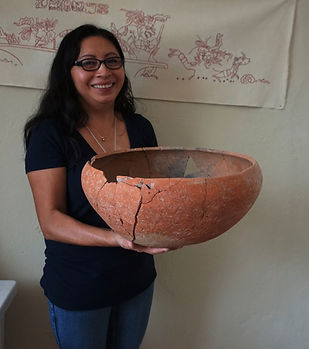
WELCOME TO THE UCANAL ARCHAEOLOGICAL PROJECT
ABOUT
THE UCANAL ARCHAEOLOGICAL PROJECT

The Ucanal Archaeological Project (Proyecto Arqueológico Ucanal or PAU) is a multi-disciplinary archaeological research project that investigates the ancient Maya city of Ucanal and the changing socio-political dynamics of Maya society. The PAU is an international collaboration of professors and students affiliated with the Université de Montréal, Universidad de San Carlos de Guatemala, San Diego Mesa College, University of Pennsylvania Museum, University of West Florida, University of Mississippi, and University of Northern Kentucky, among other universities, and relies on the collaboration and personnel from the villages of Pichelito II, Barrio Nuevo San José, San José, and La Blanca from Petén, Guatemala.
The site of Ucanal was a thriving city during the Terminal Classic period (ca. AD 830-1000), a tumultuous period in Maya history in which many other sites were experiencing the collapse of dynastic rule, environmental challenges, and in some cases, site abandonment. The PAU seeks to understand how inhabitants of the city lived during this period of Maya history, to examine how they reconfigured their political, economic, and social systems, and also to document the persistence of their traditions through these changes.
The PAU's archaeological research is conducted with the permission of Ministerio de Cultura y Deportes de Guatemala, through the Dirección General del Patrimonio Cultural y Natural (DIGEPACUNAT). Research by the PAU has been funded by grants from the Social Science and Humanities Research Council of Canada (SSHRC/CRSH), the Canadian Foundation for Innovation John R. Evans Leaders Fund, Fonds de Recherche du Québec—Société et Culture (FRQSC), American Philosophical Society, Rust Family Foundation, the National Geographic Society Waitt Foundation, Princeton University Art and Archaeology Expedition Funds, and the Université de Montréal.
THE SITE OF UCANAL

K'anwitznal or "Yellow Hill Place"








_edit.jpg)
